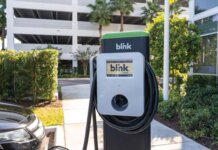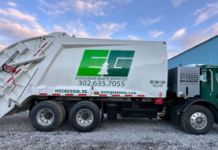Zeta Energy Corp. has been awarded a grant from the U.S. Department of Energy’s Vehicles Technology Office (VTO) for a $4 million project to advance and commercialize its high-capacity lithium-sulfur battery technology.
The VTO program was created to accelerate the development of innovative, equitable and clean mobility solutions that extend electric vehicle range while alleviating supply chain concerns for EV batteries. One of the program’s specific objectives is to further the development of long cycle life, high-energy-density lithium-sulfur batteries.
Zeta Energy has developed a sulfurized carbon material that leverages the high energy density of sulfur, while preventing the “polysulfide shuttle” effect. Sulfur has long been of interest for batteries because its theoretical energy density is many times higher than that of traditional lithium-ion battery materials. Sulfur is also inexpensive and widely abundant, unlike most other materials typically found in the battery supply chain.
Zeta Energy’s lithium-sulfur batteries use no cobalt, manganese, nickel or graphite, and can be produced wholly with domestic materials. Lithium-sulfur batteries also have a significantly smaller CO2 footprint than other batteries and are less vulnerable to thermal runaway.
Despite these advantages of lithium-sulfur batteries, previous efforts to commercialize such batteries were hindered by the polysulfide shuttle effect whereby sulfur leaches into the electrolyte, rapidly degrading the performance of the battery. Zeta Energy’s sulfurized carbon technology effectively binds the sulfur during battery operation, preventing the polysulfide shuttle effect and enabling sulfur-based batteries to achieve more than 1,000 cycles.
Though Zeta Energy also has a proprietary 3D structured metallic lithium anode that further increases the performance, longevity and economy of its batteries, this project will demonstrate the use of Zeta Energy’s sulfurized carbon cathode with a range of anodes already commercially available.
“We are honored and grateful to be working with the Department of Energy on this project to improve EV battery performance,” says Tom Pilette, CEO of Zeta Energy. “Lithium-sulfur is a technology whose time has come — it will bring a step change in the performance, weight, cost and environmental sustainability of batteries and the products that use them. This project will allow us to show how lithium-sulfur batteries can transform the EV industry and U.S. manufacturing competitiveness.”





